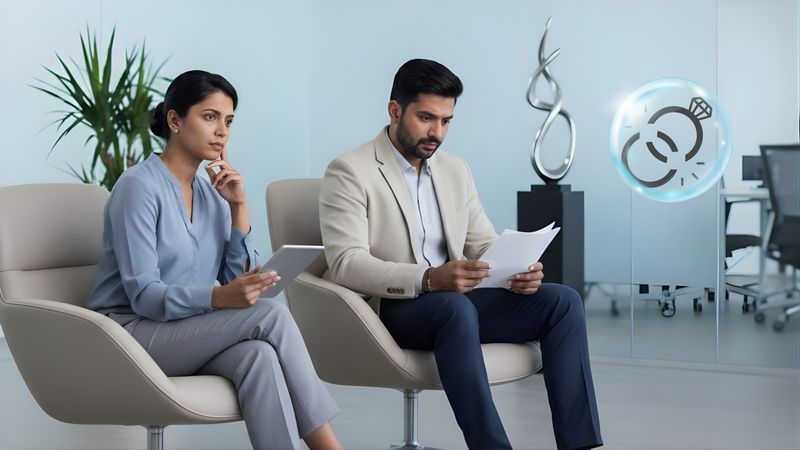Going through a divorce is one of life’s most challenging transitions, and taking that first step of scheduling a consultation with a divorce attorney can feel overwhelming. Understanding what to expect during this initial meeting can help ease your anxiety and prepare you to make the most of this valuable time. This guide walks you through the typical divorce consultation process, helping you feel confident and prepared.
The Purpose of a Divorce Consultation
A divorce consultation serves several important functions:
- It allows you to assess whether an attorney is the right fit for your case
- It provides an opportunity to understand the divorce process specific to your situation
- It helps you gain clarity on potential legal strategies and outcomes
- It gives you a chance to ask questions about your unique circumstances
Most initial consultations last between 30 minutes to an hour, giving you ample time to discuss your situation and get a feel for the attorney’s approach.
Before the Consultation: How to Prepare
Proper preparation will help you maximize the value of your consultation time:
Gather Important Documents
Having key information readily available will allow the attorney to provide more accurate advice. Consider bringing:
- Financial documents (tax returns, bank statements, property deeds)
- Marriage certificate
- Information about shared assets and debts
- Details about children (if applicable)
- Any existing prenuptial or postnuptial agreements
- Documentation of incidents (if domestic violence is involved)
Prepare a List of Questions
Writing down your questions beforehand ensures you won’t forget important concerns during the meeting. Common questions include:
- What is your experience with cases similar to mine?
- How long might my divorce process take?
- What are the potential costs involved?
- What custody arrangements are typical in situations like mine?
- How are assets typically divided in my state?
- What alimony or child support might be applicable?
Clarify Your Goals
Take some time to reflect on what matters most to you in the divorce outcome. Whether it’s custody arrangements, financial security, or specific assets, understanding your priorities will help guide the conversation.
During the Consultation: What Typically Happens
Initial Introductions and Case Overview
The consultation usually begins with introductions and an opportunity for you to share your situation. The attorney will likely ask about:
- The length of your marriage
- Your current living situation
- Whether you have children
- The primary issues in your marriage
- Any immediate concerns (like safety or financial access)
Be honest and thorough in your responses, as this information helps the attorney understand your unique circumstances.
Legal Assessment and Strategy Discussion
After hearing your story, the attorney will typically:
- Explain relevant divorce laws in your state
- Outline potential approaches to your case
- Discuss likely timelines and processes
- Address specific concerns you’ve raised
- Provide initial thoughts on potential outcomes
This assessment gives you a preliminary roadmap of what to expect if you proceed with the divorce.
Fee Structure and Representation Options
Before the consultation ends, the attorney should clearly explain:
- Their fee structure (hourly rates, retainers, payment plans)
- Estimated total costs based on your specific situation
- Alternative dispute resolution options (mediation, collaborative divorce)
- Next steps if you choose to hire them
Some attorneys offer a free initial consultation, while others charge a consultation fee. Be sure to clarify this when scheduling the appointment.
After the Consultation: Making Decisions
Evaluating the Attorney
After meeting with a divorce attorney, consider:
- Did you feel comfortable speaking openly with them?
- Did they explain legal concepts clearly?
- Did they seem knowledgeable about your specific issues?
- Were their fees transparent and reasonable for your budget?
- Did they present realistic expectations rather than guarantees?
Many people consult with 2-3 attorneys before making a decision, which is perfectly acceptable and often recommended.
Next Steps
If you decide to move forward with an attorney, typical next steps include:
- Signing a representation agreement
- Paying the initial retainer fee
- Providing additional documentation as requested
- Developing a more detailed strategy for your case
If you’re not ready to proceed immediately, take time to consider your options. Many people need space between consultation and action, and reputable attorneys understand this.
Common Concerns About Divorce Consultations
Confidentiality
Rest assured that consultations are confidential, even if you don’t ultimately hire the attorney. The information you share is protected by attorney-client privilege.
Bringing Support
Some attorneys welcome a trusted friend or family member to join your consultation for emotional support, while others prefer one-on-one meetings. Ask about this policy when scheduling.
Virtual vs. In-Person
Many attorneys now offer both virtual and in-person consultations. Choose the format that makes you most comfortable and works best for your schedule.
Conclusion
A divorce consultation is your opportunity to gain clarity, understand your options, and find the right legal advocate for this significant life transition. By preparing thoroughly and knowing what to expect, you can approach this meeting with confidence rather than anxiety.
Remember that the right attorney should not only possess the legal expertise to handle your case but should also make you feel heard, respected, and supported throughout the process. Trust your instincts when making this important decision.
Taking this first step might feel daunting, but it’s an essential move toward creating a positive new chapter in your life.




